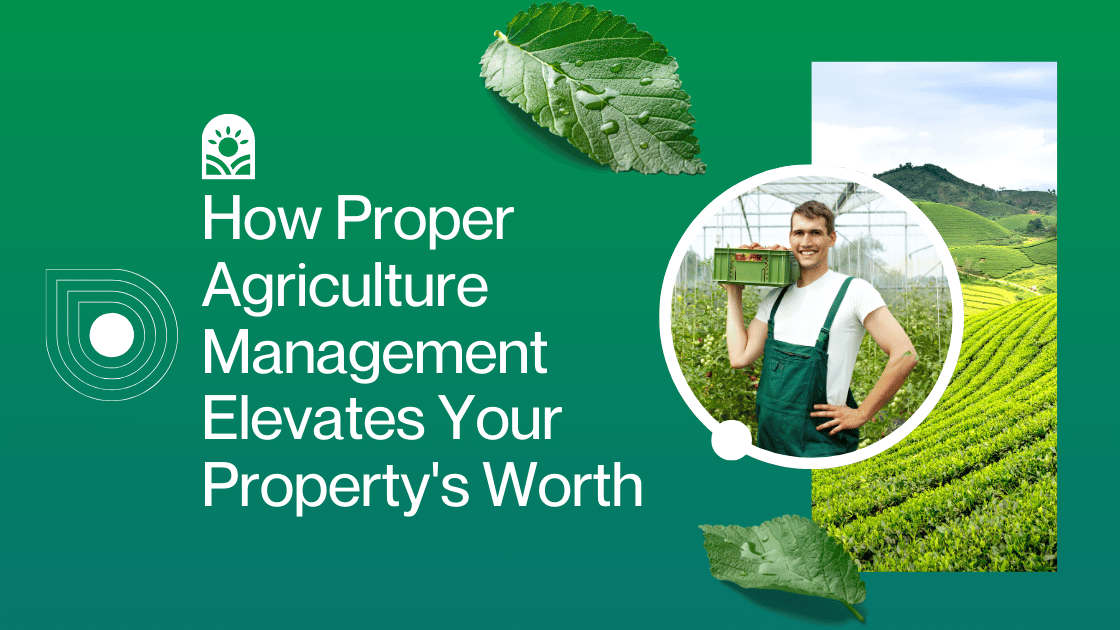Discover how strategic agricultural management practices can significantly increase your property’s market value and long-term investment potential.
The following is a guest post from my bloggy friend Taylor McKnight on behalf of Dragonstone Ranch. Interested in having a guest post on my website? Click here for my guest post submission form.
Key takeaways from this post:
– Understanding the fundamentals of agriculture management
– The role of sustainability in property value
– Impact of water management on land value
– The importance of technological integration
– Value of accessibility and infrastructure
– Potential for diversification opportunities
– Role of aesthetics in property valuation
From Soil to Sale: How Good Farm Management Increases Property Value
Every inch of our earth tells a story of growth, prosperity, and natural wonders. Among these wonders, vast stretches of agricultural land stand as testaments to humanity’s resilience and our enduring relationship with the soil. As cities burgeon and populations burgeon, there’s an increasing demand for sustenance. Amidst this, the value of fertile farmlands isn’t just in the crops or stock they yield, but in their increasing appeal as valuable real estate assets. However, the worth of these lands isn’t simply intrinsic; it can be augmented by apt agricultural management.
Understanding the Essence of Agriculture Management
Agriculture management delves deep into the practices that optimize the use of human and natural resources to produce sustainable and profitable crops. It’s not merely about planting and harvesting; it’s an intricate dance of soil health maintenance, pest control, water management, economic strategy, and even animal or stock inclusion. Furthermore, professionals in the field leverage advanced technology, from drones to data analytics, to monitor, predict, and enhance crop and stock yields.
Just as a well-maintained home can fetch a higher price in the real estate market, an efficiently managed farm is a valuable and viable investment. Potential buyers or investors often gauge the health of the soil, the water sources, and the existing infrastructure before making a purchase. Buyers and investors may also want to analyze the quality of hoofstock or products that are created from the farm animals. An agricultural plot that showcases evidence of good agricultural practices often stands out, enticing those who understand the long-term gains of a fertile, productive land.
Boosting Property Value through Expert Agriculture Management
At the heart of agricultural management is the principle of sustainability. This doesn’t only mean environment-friendly practices, but also those that ensure the land remains fertile and productive for years to come. Proper soil conservation techniques, like crop rotation and contour plowing, can enhance soil health and prevent erosion, thereby ensuring the land’s longevity. Dependent upon what animals interact with the soil and overall physical area, manure along with other raw materials can enrich and improve the ground’s quality. Of course, keep the animals away from the crops as they could wreak havoc in that department and you do not want one advantage to cancel out another.
Secondly, efficient water management, is an integral component of agricultural management, that can be a major selling point. Properties with well-maintained irrigation systems, water conservation practices, and consistent water sources often demand higher prices than those without. After all, water is life, especially in agriculture. Usually buyers and investors can see if the water quality is excellent based off of how the crops appear to be. However, there is obviously a lot that goes into crop management so this would not be a do or die factor. Just make sure to get your water tested frequently as well, because you do not want to hand off your land to someone else with potential issues going on. In many situations, people actually prefer to invest in lands that have access to a personal well compared to that of an overall water supply system. This is of course according to the individual because an overall water system may have better quality.
Moreover, a property that embraced technology, whether through precision farming or automated irrigation systems, underscores its progressive nature. Such advanced practices often translate to higher yields and efficiency, further driving up the property’s value. This is especially the case in today’s ever evolving technological society. While it is not a necessity, it is common sense that many individuals would prefer newer technology over old.
Beyond Agriculture: Other Catalysts for Elevated Property Worth
Its agricultural prowess doesn’t solely determine a property’s value. Several other factors play pivotal roles in this appraisal. For one, accessibility is crucial. Easily reachable properties, with well-maintained roads and connectivity to nearby urban centers, are always in higher demand. A new buyer or investor will not want a property they cannot even get to. Therefore, if you do have a piece of land that faces challenges here you may want to think of tackling this issue. Obviously, there is nothing you can do about it being far away from a main road but you could make sure you have a pathway that is clear at all times for those to come and go.
Additionally, a property’s aesthetics and natural beauty can significantly influence its perceived value. Scenic views, natural water bodies, and even biodiversity can render a property more attractive to potential buyers or investors. Here, property placement is essential. For example, in a ton of larger cities you may not find beauty within the country. However, in rural towns and places a prime agricultural spot could be born or found.
The potential for diversification can also heighten a property’s appeal. Parcels of land supporting varied ventures, such as agritourism, fishing, or even renewable energy projects, showcase versatility, making them a lucrative proposition for many investors. This is more so for larger pieces of land that has more than enough room for these activities, but a smaller chunk may can house one of them too.
While the intrinsic value of agricultural land remains undeniable, its real worth is molded by the care, expertise, and vision with which it’s managed. Whether you’re a farmer, investor, or passionate about the land, remember that every plot has a story. With proper agricultural management, that story can be one of ever lasting prosperity and natural beauty.






